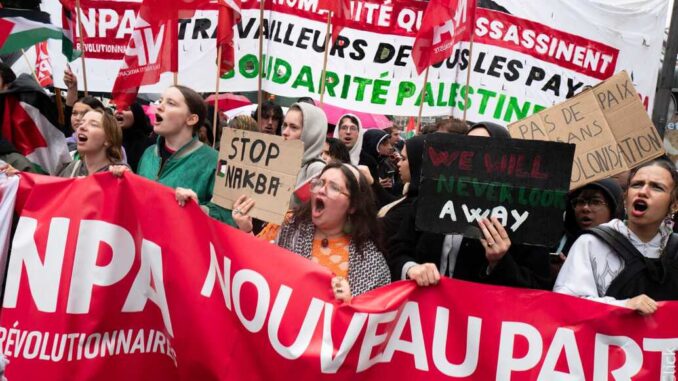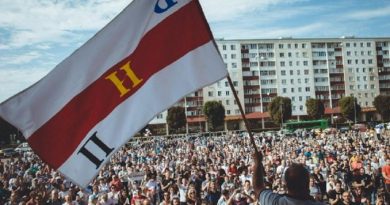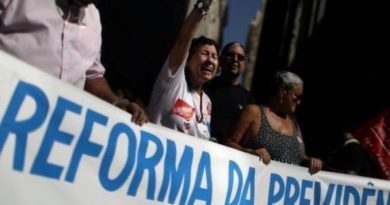Elections in France: debate with Permanent Revolution
ByGérard Florenson
Frédéric Lordon, well-known economist and often traveling companion of the extreme left, published a text on his Médiapart blog calling to block the danger of fascists coming to power by voting for the New Popular Front. Lordon lashes out at sectarian leftists who refuse to get their hands dirty with this vote by giving them the appearance of a lesson in Leninism.. It also paints a picture of the imminent catastrophe that it calls to avoid through electoral mobilization.
Paul Morao responds with a long article published on the Révolution Permanente website where he calls for considering the issues to go beyond panic reflexes. So yes, a healthy exercise for debate (sin invectivas) possible short-term changes in the political and social situation, without playing fortune tellers but to prepare for our tasks.
Tomorrow the black shirts?
By Frédéric Lordon, a National Rally government aligned with Ciotti and the extreme right, supported by a majority of deputies, It would be something more than the slightly more reactionary continuity of the policies of Macron and his ministers. We can recognize that there would be a break with the alternation of recent decades between the classic right and the false left and we must carefully read their arguments about the immediate dangers of such a situation.. And even more so when in the current electoral system, in which everything is decided in the second round with vote transfers, makes this scenario possible.
Of course, Lordon insists on the issue. A far-right government resulting from the polls, with a majority in the Assembly but not in the Senate, with Macron as president of the republic for now, which remains the cornerstone of institutions, it would not be the march on Rome and the left-wing deputies would not immediately suffer the fate of Matteotti. But Lordon does not make political fiction when he fears that the victory of the extreme right will liberate not only the words but also the actions of the most radical of his supporters.: hetruncheon (garrote) and castor oil, not before the elections but after. The first victims would be, Of course, the immigrants, LGTBI people and activists who oppose environmental attacks. The fascists would be encouraged not only by the royal program, just camouflaged from la RN, but also by the passivity of a police force corrupted by the extreme right.
At the same time, we will have a wave of demands from employers to move faster and with more force than previous governments. Gone are the days when “social partners” clashed over the distribution of the fruits of growth before reaching a compromise.. INVIVO address[1] show the way: wants to put an end to the unbearable obstacles that are labor inspection, labor courts, the representative institutions of the personnel and, Finally, the unions themselves. The multiplication of complaints against union activists goes in the same direction. Who can believe that a far-right government would not quickly satisfy them by dismantling the remaining barriers against bosses' arbitrariness?? It wouldn't be fascism, Of course, but the conditions of the fight would be even more difficult, which is not indifferent to us.
Illusion of a New Popular Front further to the left
Lordon may be panicking, but he is not delusional and his arguments must be taken seriously. What is much more questionable is the last part of your text, where he evokes the very unlikely possibility of a victory for the New Popular Front, after having tried to differentiate a right wing and a left wing (¿Mélenchon?) within the coalition.
Remember rightly, and this is very useful compared to the official history, what in 1936 It was the general strike and not the kindness of Blum that was at the origin of the main social conquests. Unfortunately, tries to reflect the current situation with the classic chorus«we choose them but then we control them and push them behind the wheel», forgetting that it doesn't always happen like this. There was 1936 but also 1981. The election of François Mitterrand had aroused enthusiasm and immense hopes, but what was not repeated 1936: the leaders of the PCF and the PS, with the union bureaucrats, They knew how to impose on the base to remain calm and let the minister comrades work. We know what happened next.
So the idea of a “popular fighting front”… Without a doubt, the control capacity of bureaucratic apparatuses is no longer the same, but neither is the situation of the labor movement. Anti-fascist mobilizations, for Palestine, for the environment, show willingness to fight for broad sectors, particularly among young people, but it is not surprising that Lordon forgets the absence of the indispensable subjective factor: the revolutionary organization.
In their rush to promote the “useful vote”, Lordon forgets that in France there are two rounds of voting. Many times we say that in the first one we choose, That is, we vote according to our convictions., and in the second it is eliminated, for example, to the candidate of the right or the extreme right voting for the candidate of the Popular Front. Those who vote, despite pressure from the pseudo-institutional left, by the NPA-R, Permanent Revolution or Workers' Struggle will be, for a large part of them, expressing his rejection of Macron and the Rassemblement National, at the same time as marking their distrust towards the reformists who intend to save them.
Permanent Revolution turns the stick in the opposite direction
In his response to Lordon posted on the RP site, Paul Morao argues at length against what seems to him to be the product of the panic that has taken hold of left-wing personalities, often better inspired by their analysis. As we have indicated before, We also believe that a unfortunately possible extreme right majority in the National Assembly and a government resulting from it would not mean the establishment of a fascist regime of the Hitler or Mussolini type.. However, We do not relativize the immediate consequences of a policy that is not only authoritarian but also violent., supported by a part of the State apparatus.
A Bonapartist regime? Of course, It is better to be precise in our analyzes, but in the history of France there is something more than the Doumergue episode. In 1934 He was the “Austrian Bonaparte”, Dollfoot, who crushed the Vienna proletariat and liquidated the social democratic party. Also in 1934 it was the army, and not the fascists, the one sent by a right-wing government against the "Commune of Asturias", The repression caused thousands of deaths and injuries, and imprisoned thousands of labor activists. So if a far-right command appears, It is common sense to shoot first and then discuss whether the term "fascists" was appropriate..
And here we have a question. The distinction between fascism and Bonapartism, pertinent in itself, Don't you intend to justify in advance the refusal to call for voting in the second round?, as unfortunately happened in 2022, to a candidate of the New Popular Front opposed to the National Rally?
[1] A European cooperative group that claims to preserve the environment (They call themselves “the green cooperative”) deepening agribusiness and with anti-union positions and clear labor exploitation.
(reproduced from International Socialist League (lis-isl.org)




